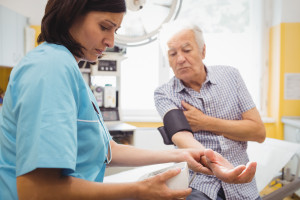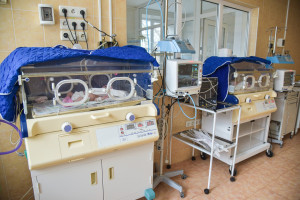A revolution in the health of Poles that will save PLN 6 billion annually? The Senate has taken up the subject

- The Parliamentary Team for Adherence, appointed by the head of the Health Committee, Beata Libera-Małecka, wants changes in the participation of patients in treatment. The reason? In the case of chronic diseases , up to 50 percent of patients in Poland do not follow medical recommendations . This is dangerous for health and the budget.
- The first meeting of the Team (July 2) was attended by members of parliament, representatives of the Ministry of Health, the National Health Fund, scientific societies and experts
- Adherence, or the consistent adherence of patients to medical recommendations, has been identified as key to reducing deaths and healthcare system costs. New regulations and educational campaigns are expected to improve the situation
- What are the ideas? Including strengthening the role of pharmacies and pharmacists in prevention and treatment, patient support by various medical professions and systemic educational solutions inspired by the Portuguese model, as well as the use of the Patient's Online Account to increase adherence to therapy.
The inaugural meeting of the Parliamentary Team for Adherence took place in the Senate in early July. Experts and decision-makers discussed how to effectively approach the treatment of chronic diseases in Poland. Adherence, or consistent adherence of patients to medical recommendations, was considered the key to reducing deaths and costs of the healthcare system.
- We must accept that non-compliance with recommendations is the norm - said Prof. Krzysztof Narkiewicz , head of the Department and Clinic of Arterial Hypertension and Diabetology at the Medical University of Gdańsk.
- We already know that most patients do not follow doctors' recommendations. Now we need to consider what needs to be done to improve this - said the chairwoman of the Team, senator Beata Małecka-Libera , opening the meeting.
- In high-income countries, insulin prescriptions in pharmacies are filled in 90 percent; in middle-income countries, only 40 percent of prescriptions are filled - gave an example of Prof. Grzegorz Dzida , head of the Diabetology Department of the Department and Clinic of Internal Medicine at the Medical University of Lublin. This data is based on a global study called PURE (Prospective Urban Rural Epidemiology), which includes patients with diabetes.
Prof. Aleksander Prejbisz, Head of the Department of Epidemiology, Prevention of Cardiovascular Diseases and Health Promotion at the National Institute of Cardiology in Warsaw, presented key conclusions from the analysis conducted by his team in cooperation with the National Health Fund and the Agency for Health Technology Assessment and Tariff System. They were heard not only on July 2 in the Senate, but also at a debate organized at the end of October 2024 in Warsaw by the Medical Raison d'Etat.
It turned out that half of patients with hypertension do not continue therapy within a year of diagnosis and the first prescription . The oldest age groups, i.e. those aged 70-80, adhere best to medical recommendations. - The problem of non-adherence to medical recommendations is a problem of young and middle age. Among 30- and 40-year-olds, no more than one in three people will persevere in therapy for a year - indicated Prof. Prejbisz.
In the European Union, adherence is responsible for 200 thousand deaths per year and losses of 125 billion euros. In Poland, compliance with recommendations could bring savings of up to 6 billion złoty per year.
Adherence: three sub-teams in the Senate, two systems in the Ministry of HealthAt the inaugural meeting of the Parliamentary Adherence Team, three sub-teams were established:
- for: health education and training,
- access to medical records,
- pharmacists.
By the end of July this year, they are to prepare legislative and organizational solutions in the field of adherence, which can be implemented by the end of 2025.
Beata Małecka-Libera informed that the starting point are proposals regarding: expanding the competences of medical professions, mainly pharmacists; educating medical staff in the field of adherence; access to data and electronic medical records (improving the patient's online account); development of digital monitoring and notification systems; implementation of adherence to coordinated care pathways.
Deputy Minister of Health Marek Kos reminded that the health care system is responsible for the state of our health in 10 percent, environmental factors are 20 percent, genetic factors are another 20 percent, and as much as 50 percent is lifestyle, including following doctor's recommendations . - Failure to follow doctor's recommendations costs the health care system PLN 6 billion per year - he emphasized.
He informed that the Ministry of Health is working on a patient health monitoring system and a home medical care system.
- The first one is to be based on IT tools that will enable the collection and analysis of data on medical visits, test results and therapy implementation in one place. - We are starting to analyze the patient's health condition based on the appropriate IT tools that we already have and that we have at our disposal. This project has already started, and the funds for its implementation will come from the National Reconstruction Plan. We want to complete it in the second half of next year - he announced.
- In turn, the home medical care system is intended for patients with cardiology and diabetes, among others. In this case, telemedicine and remote monitoring of parameters such as heart rate, blood pressure or glycemia are to help reduce hospitalizations and enable more effective outpatient treatment. - The results of health monitoring on the example of Norway have shown that data on heart rate, blood pressure or body weight, transmitted using telemedicine tools, bring good results. [...] Fewer hospitalizations, more stays at home and taking medications on an outpatient basis are cheaper - indicated the deputy minister.
- 37 thousand pharmacists, about 27 thousand working in public pharmacies. Every day we meet 2 million patients in 12 thousand pharmacies. How huge this potential is, let only the fact that when we were allowed to vaccinate against covid, we have 3.5 million vaccinations performed show - enumerated in the Senate Dr. Marek Tomków, president of the Supreme Chamber of Pharmacists.
He added that in Poland we also have 10 million patients entitled to free medicines on an annual prescription. - So we are talking about the huge potential mentioned by the minister. Do patients take medicines? We see another phenomenon, which can be described as hyperadherence, i.e. a patient is treated by several doctors and takes medicines from all of them - he pointed out.
He proposed implementing medication conciliation in hospitals , which "works in many countries around the world" - a patient comes from home to the hospital with his or her medications and a pharmacist monitors and corrects their intake, for example, to avoid duplication of therapy.
According to Tomkow, preventive programs should appear in pharmacies , such as support in quitting smoking or overweight control.
- We are not in the circulatory system disease program, in the "My Health" program, [...] in the program aimed at people who want to quit smoking. And this is also adherence - he summed up.
There was also an idea for the Internet Patient Account (IKP) to become a proactive system that sends patients alerts about unpurchased medicines or visits . It was also pointed out that it is necessary to give pharmacists additional rights to allow them to view the patient's medical records and to fulfill a continued prescription.
15 minutes a month. Education, stupid!During the session, it was said that the lack of awareness of patients about chronic diseases is one of the main barriers to adherence. Therefore, the Senate, in cooperation with the Ministry of Health, plans to emphasize health education from the youngest age. The inspiration is to be Portugal, which, thanks to broad social education and cooperation with the media - as part of other systemic activities - has achieved success in the fight against hypertension.
- We need to educate not only seniors and adults, but also start with children. Hence the great dissatisfaction that health education, which is being introduced in September (in schools - ed.), is being introduced optionally. [...] Because if someone breaks a finger, it is a sudden, acute and momentary matter. And falling ill with diabetes at the age of a teenager is a huge challenge for the rest of your life - said Deputy Minister Marek Kos.
According to the minister's statement, the ministry and the Senate are planning a media campaign in Poland that would reach all age groups in 2026, using both traditional media and the Internet, which is particularly popular among young people.
- These media campaigns. We have to do this because it simply does not exist. In one of the programs on regional television I asked how it looks like for them. It turns out that it is 15 minutes per month - said Deputy Minister Kos about the scale of health campaigns.
Prof. Izabela Uchmanowicz , Dean of the Faculty of Nursing at the Medical University of Wrocław, emphasised the role of nurses in education and coordinated care, particularly in the case of heart failure, where telephone follow-ups reduce hospitalisations. There was also a proposal to introduce advanced nurses (Advanced Practitioner Nurses) with competences to prescribe drugs. Prof. Piotr Jankowski , Head of the Department of Internal Medicine and Gerontocardiology, Deputy Director of the Medical Centre for Postgraduate Education and the Prof. W. Orłowski Hospital in Warsaw, proposed greater use of prophylactics - a new profession that could relieve doctors in educating patients.
The meeting revealed the problem of misinformation, both among patients and in the medical community, e.g. negative opinions about statins. Prof. Piotr Dobrowolski, head of the Independent Lipid Clinic of the National Institute of Cardiology and deputy head of the Department of Epidemiology, Prevention of Cardiovascular Diseases and Health Promotion of NIKard, proposed legislative actions to counteract such opinions among doctors and pharmacists.
According to Prof. Prejbisz, the problem of lack of adherence among patients results, among other things, from the fact that the Polish healthcare system does not emphasize achieving specific therapeutic goals. - We do not have elements motivating either the doctor to monitor the patient or the patient to monitor themselves - said the specialist.
During the Medical Racja Stanu conference, he pointed out that many problems with adherence result from the lack of good cooperation between the doctor and the patient (so-called concordance). This means that doctors do not explain to patients why they should take a given drug, how to use it so that it is effective, etc. - Our relationship with the patient must change towards partnership, joint responsibility, understanding. [...] I also explain that pills will not solve everything, that the patient must change his lifestyle - listed Prof. Prejbisz. He added that goals regarding lifestyle change or weight loss must be realistic and achievable - for example, the patient should lose three kilos by the next visit, not ten .
Copyrighted material - reprint rules are specified in the regulations .
rynekzdrowia














